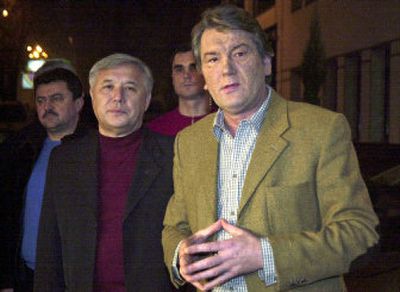Russia cuts natural gas to Ukraine, inflaming feud

MOSCOW – The tense relationship between Russia and Ukraine soured further Sunday when Russia’s natural gas monopoly made good on its threat to cut shipments to its western neighbor after the two sides failed to agree on the terms of a price increase.
The bold step by Gazprom, a monopoly that supplies Ukraine with about a third of its natural gas, came after Ukraine rejected an 11th-hour proposal by Russian President Vladimir V. Putin that would have delayed for three months a steep increase.
Although Gazprom had insisted that supplies to Western Europe – which receive gas through the same pipelines – would not be affected, some countries said Sunday night that they were feeling the effects of the shutdown. Russia accused Ukraine of siphoning off for its own use gas shipments destined for the West, which Ukraine immediately denied.
On the surface, the dispute between the two countries, both once part of the Soviet Union, is simply over the price of a natural resource that is critical to the two nations’ economies.
Ukraine has been importing natural gas from Russia for use as heat as well as fuel to run many of its largest factories at a cost well below what some of Gazprom’s other customers in Europe pay, in part as a holdover from Soviet times, and Russia has demanded an increase to bring the cost in line with world markets.
But what should have been a routine business deal turned into a politically charged crisis, as Russia seeks to maintain its influence in former satellites intent on gaining greater political and economic independence.
Gazprom, which could not act without at least tacit approval from the Kremlin, is seen in Ukraine as punishing the country for the peaceful revolution that toppled Ukraine’s pro-Kremlin government last year and installed Victor A. Yushchenko as president.
“They want to get closer and closer to the European Union,” Andrei Kortunov, head of the Moscow-based New Eurasia Foundation, said of Yushchenko and his government. “I think that is something which really accelerated (Russia’s) rather radical and rigid position towards gas.”
“It’s very difficult to see an exit in general,” said Tatyana Stanovaya, an analyst at the Center for Political Technologies in Moscow.
“What Ukraine is offering, Russia doesn’t want to accept, and vice versa. This is only a political matter. After the change of government in Ukraine, the special relationship between Russia and Ukraine came to an end.”